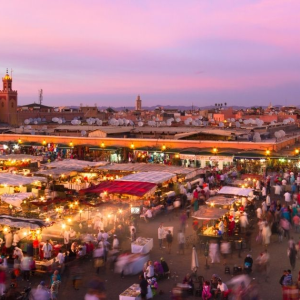Why Most Startups Fail in Dubai
Dubai is a magnet for dreamers. From shiny skyscrapers to tax-free earnings, it offers everything an entrepreneur could ask for — on paper. Every week, a new startups is born. Founders pitch big ideas, investors sip artisan coffee, and coworking spaces buzz with ambition. But behind this thriving scene, a quiet reality lurks — most startups in Dubai don’t survive past the first two years.
It’s a truth many are reluctant to talk about. The Instagram feeds show wins, launches, and hustle culture quotes. But the failure rate is high, and the pressure is real. So, what’s going wrong? Why are so many well-intentioned, well-funded startups in one of the world’s fastest-growing cities falling apart?
Let’s unpack the real reasons — from ground-level challenges to mindset issues — and hear what founders, investors, and experts have to say.

The Illusion of Ease
Dubai markets itself as a city built for entrepreneurs. And in many ways, it is. The process to register a business is smoother than in many countries. There are free zones, investor-friendly laws, and a deep hunger for innovation. But these benefits often create an illusion that starting and running a business here is easy.
The reality is far from that. Many founders underestimate how competitive and costly Dubai can be. They enter the market with big dreams but little understanding of how the local ecosystem truly works. By the time they figure it out, the money is already gone.

High Burn Rate, Low Margin
One of the biggest reasons startups crash in Dubai is the burn rate — the speed at which a company spends money. Office spaces in Dubai are expensive, salaries are high, and marketing costs are steep. Many first-time founders overestimate revenue and underestimate expenses.
Because of this, startups often run out of money before they even reach product-market fit. Add to that the pressure to look successful — fancy offices, premium branding, influencer marketing — and the result is a cash flow nightmare.
Ali R., a startup advisor who’s worked with over 30 businesses in the UAE, says, “Too many founders spend like they’ve made it before they’ve even tested their market. Dubai rewards image, but the reality is that runway matters more than looking rich.”
Lack of Market Understanding
Many expat founders enter Dubai thinking that if an idea worked in London, Mumbai, or Toronto, it will work here too. But Dubai is unique. Its population is diverse, transient, and constantly changing. Consumer behavior is not the same across nationalities, and what works for one group may fail with another.
In addition, buying power in Dubai is very uneven. There’s a wide gap between luxury consumers and everyday wage earners. Businesses that fail to identify and serve the right niche often fall flat.
Local culture, regulations, and expectations also play a massive role. A brilliant app idea might crash simply because it doesn’t consider Arabic user experience or compliance laws. Market fit in Dubai isn’t just about demand — it’s about timing, pricing, and cultural understanding.
Too Many Me-Too Businesses
Dubai’s startup scene is full of repetition. Once a business model becomes successful — whether it’s a delivery app, luxury concierge, or digital marketing agency — dozens of others pop up trying to copy it.

While competition is normal, blindly replicating a model without innovation or differentiation doesn’t work in Dubai’s saturated markets. The city moves fast. Trends die even faster. Without a unique value proposition, startups get lost in the noise.
Zaina M., a failed founder turned consultant, shares, “We launched a wellness subscription box thinking we’d ride the global wave. But everyone started doing the same thing, and our costs were higher than returns. We weren’t solving a real problem — just chasing a trend.”
Talent is Expensive, Retention is Hard
Hiring in Dubai is not easy. Good talent is expensive. Hiring the wrong people is even more expensive. Startups here often struggle to build lean, effective teams due to inflated salary expectations or lack of long-term employee loyalty.
Moreover, the transient nature of Dubai’s population creates high turnover. People leave the country, switch industries, or hop between offers. Training new employees becomes a time-consuming and costly affair.
In the early stages, every hire matters. One poor decision in leadership or execution can break momentum, destroy company culture, or waste precious months of growth.
Legal and Operational Overload
Though Dubai is startup-friendly, the paperwork and compliance involved can still overwhelm first-time founders. Choosing between a free zone and mainland setup, navigating visa rules, meeting Emiratization targets, and dealing with trade licenses — these tasks can eat up a surprising amount of time and money.
Many founders also don’t realize how different free zones operate. A license in one may not allow you to serve customers across the UAE. Legal mistakes made early can haunt a startup later, especially when scaling or seeking funding.
Getting reliable legal advice, proper documentation, and operational clarity from day one can be the difference between a strong foundation and a shaky one.
Poor Financial Planning
A lot of Dubai startups don’t fail because of bad ideas — they fail because of bad math. Founders miscalculate how much money they need, how long their startup runway is, or how quickly they’ll become profitable.
Many also rely too heavily on external funding without developing a sustainable revenue model. When investment dries up — which it often does after the first round — they’re left with nothing but overheads and unmet projections.
Farhan S., a fintech founder who recently shut down his startup, reflects, “We raised $150K in our seed round and thought that would carry us for a year. We didn’t budget for delays in tech, hiring mistakes, and cost of rebranding. In eight months, we were broke.”
Founder’s Burnout and Mental Health
Running a startup in Dubai isn’t just a financial risk — it’s a personal one. The pressure to succeed is enormous, and the cost of failure can feel humiliating in a city that celebrates only winners.
Many founders suffer in silence. They work 16-hour days, juggle multiple roles, and isolate themselves from friends and family. The constant stress, combined with social comparison and fear of judgment, often leads to burnout, anxiety, or depression.
There’s still a stigma around mental health in the business world. Very few talk about therapy, rest, or emotional well-being. But burnout is one of the most common — and underestimated — reasons why startups quietly shut down.
Lack of Mentorship and Real Support
While there are many startup accelerators, events, and pitch nights in Dubai, true mentorship is hard to come by. New founders often feel like they’re figuring everything out on their own.
Access to investors doesn’t always mean access to advice. And many community events, though flashy, fail to provide real strategic value. As a result, startups may look polished on the outside but lack the guidance and wisdom needed to survive tough times.
Having a mentor, advisor, or experienced founder to call in moments of crisis can make a massive difference. It’s not about raising money — it’s about raising clarity.
So, What Can Be Done?
Not all startups in Dubai fail. In fact, many thrive — but they do so with realism, grit, and smart decision-making. Here’s what experts and successful founders suggest:
- Start lean: Don’t overspend on branding, offices, or unnecessary hires in the beginning. Test your product first.
- Solve a real problem: Make sure there’s actual demand. Don’t create a solution looking for a problem.
- Know the local market: What works globally might not work here. Understand your customers’ habits, language, and needs.
- Plan your runway: Budget for the worst-case scenario. Expect delays. Don’t depend entirely on funding.
- Focus on team culture: Hire slow, fire fast. Train well. Appreciate people who stick with you.
- Stay mentally fit: Rest. Talk to someone. Don’t glamorize overwork. You matter more than your startup.

Final Thoughts: Failure Isn’t the End
Failure hurts, especially in a place where success is flaunted loudly. But failing in Dubai doesn’t mean you’re a failure. It means you tried something brave. You took a risk most people only dream of.
And if you learned, pivoted, or started again — then it wasn’t failure at all. It was a beginning.
Dubai will always attract entrepreneurs. But the ones who last are not the flashiest or fastest — they’re the most prepared, patient, and purpose-driven.
If you’re building something in Dubai, take a breath. Stay grounded. Build slow, and build smart. The city is tough, but so are you.
Follow us on instagram: UAE STORIES
Read More: Flydubai Aircraft Maintenance Centre: A Major Step Towards Operational Excellence













